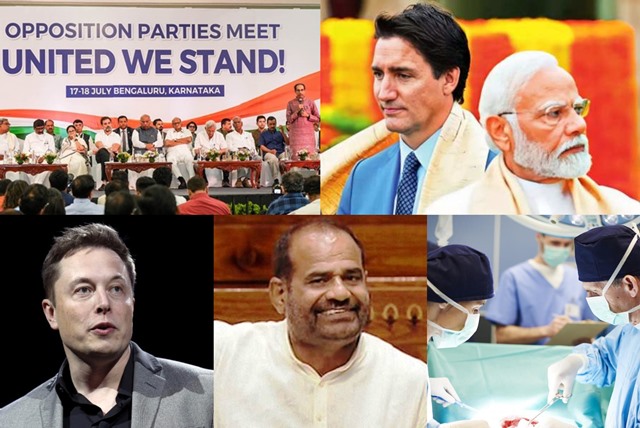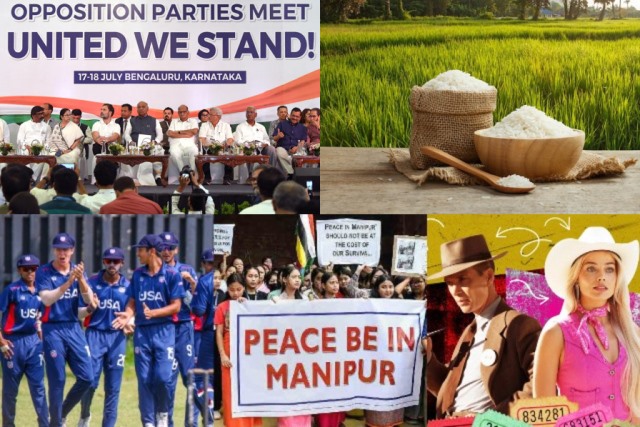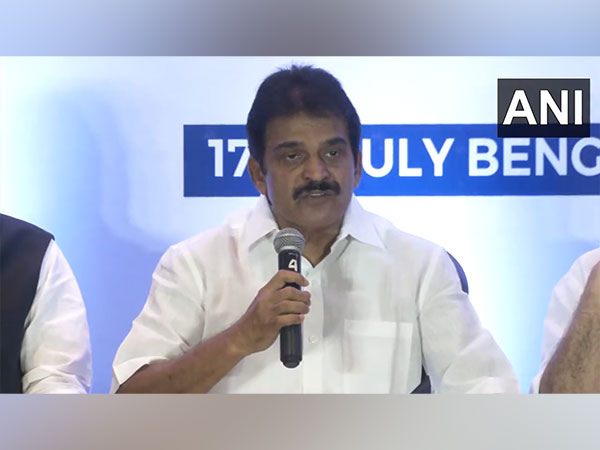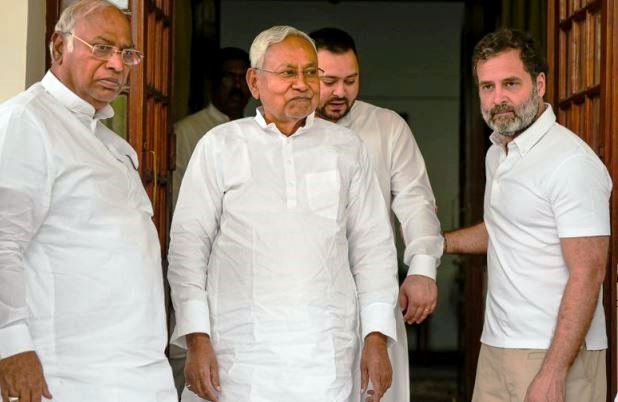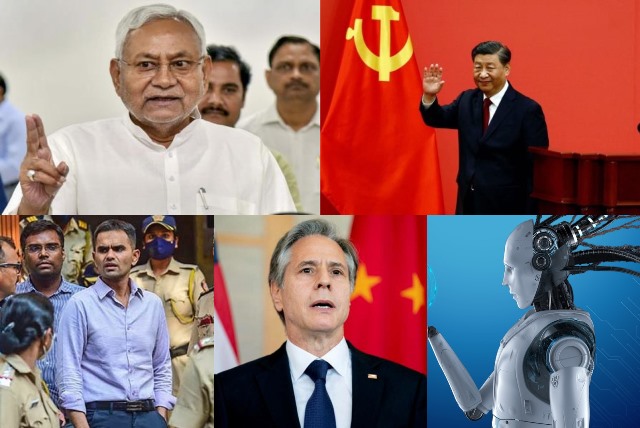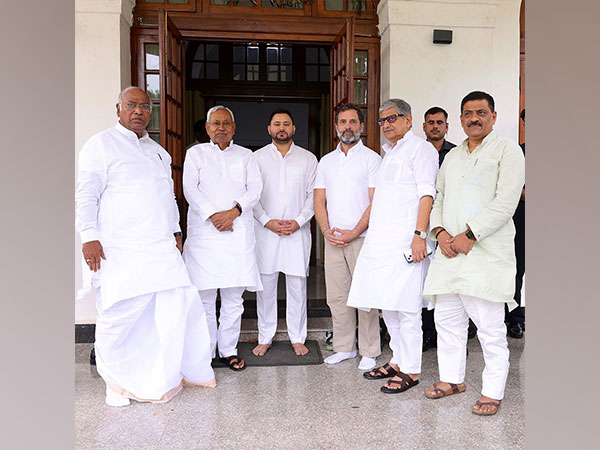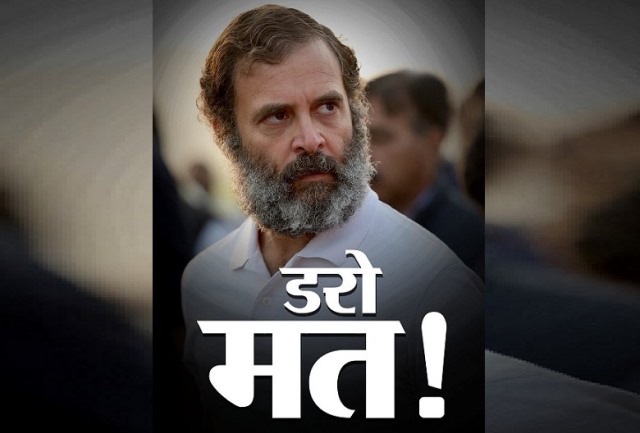If the caste census is an unstoppable idea now, Rahul Gandhi too is an unstoppable idea. Indeed, he is flying on the wings of a certain special kind of passion which can only arrive once in a lifetime. And the time has come now.
Contrast this with the dark irony of the fake messiah. Not only was he decisively defeated in the last parliamentary polls, he seems to have totally vanished from the scene, including from within the stooge media, who would start crawling at the mere mention of his name.
Rahul Gandhi is once again right. The constant fear and overwhelming terror of the last 10 years seems to have disappeared faster than one could imagine.
And it is not coming back!
In his recent, highly successful visit to America, there were signals which were as clear as sparkling, winter sunshine. That the PM was not biological, but, was a prophet sent by God, proclaimed in Varanasi, was the first transparent sign, said Rahul Gandhi. That revealed his “psychological collapse”. It punctured the “carefully constructed 56-inch persona”.
Talking to students and teachers in Washington DC, he said: “The idea of Mr Modi, 56-inch chest, direct connection with God, that’s all gone; its history now. He realizes it, India realizes it, his partners in the government realize it, three or four senior ministers in his government realize it.”
“I think early on he had realized this thing is going wrong. We were getting inputs from regular sources, some of the agencies… it was pretty clear that they were in trouble… And we knew when he said, I speak directly to God, that we have actually blown him apart… People think, well, this was the prime minister saying that I am special, I am unique and I talk to God. But, that’s not how we saw it. Internally, we saw it as a psychological collapse,” he said.
Rahul Gandhi’s visit to America is a pointer. Surely, there are powerful forces in the West which want a paradigm shift in India.
For a big democracy, there has been just too much of hate politics, mob-lynching, minority-bashing, bad-mouthing, war-mongering, and infinite injustice. Umar Khalid, Gulfisha, Sharjeel and other brilliant, young scholars are still languishing in prison. Clearly, the Supreme Court, all other courts in the land, and, especially, the current chief justice, who arrived riding on ‘Great Expectations’, have failed to give them justice. This is, indeed, tragic and beyond belief.
The rise and rise of Kamala Harris marks a contrast with the fall and fall of the fake god-send in India. Certainly, there is no love lost among the Democrats for the fascists in India. And, with Bernie Sanders, and his socialist ‘squad’, including Alexandra Ocasio-Cortez, Ilhan Omar and Rashida Tlaib backing Kamala Harris, there is little hope left for the Neo-Nazis in India, to get good vibes from most of America.
The clarion call of the PM, ‘Abki baar Trump Sarkar’, breaking all norms and protocol, and sending a clear message to the Democrats, has not been forgotten. Donald Trump, friend and ally of the PM, sharing most of his retrograde views, is on a sticky wicket. The first debate between him and Kamala Harris has proved that all his cards seem to have already collapsed.
The mass murderer of Israel, one of the best buddies of the Indian PM, isolated and discredited in the entire world, and hated by a majority of his own people, is counting his last days in power. Undoubtedly, it is Benjamin Netanyahu, who is blocking all the efforts for the release of the hostages in custody of the Hamas. He simply does not seem to care one bit about them, or, their grieving families. With the genocide still continuing in Gaza, and, now, spilling over in the West Bank, the tragic fate of the condemned Israeli hostages, and their every day suffering, seems to find no end.
Meanwhile, the INDIA alliance too is becoming an unstoppable idea. Only a miracle can save the BJP in Haryana. With world champion, now, a national icon, Vinesh Phogat, contesting from her own homeland on a Congress ticket, the wave has already swept the ‘ground beneath the feet’ of the Hindutva forces. Defeat stares point-blank at them, and not even their non-biological, fake prophet can save them anymore.
The cycle of defeat should inevitably follow in Maharashtra and Bihar. With a discredited Nitish Kumar totally out of focus, and the graph of Tejeshwi Yadav rising, Bihar, once again, as in the past, will show the way. Like that of the PM, Nitish Kumar’s days too are over.
ALSO READ: Youth, Jobs and Disenchantment in India
The defeat in Maharashtra will mark the final political rupture in the fate of the BJP. Not only is it the financial capital of India, the defeat of the BJP in the state will be a clear pointer that all the crony capitalists, who, till now, were eating from the hands of the Gujarati duo calling the shots in Delhi, will now start looking for greener pastures.
With the sold-out, faction-ridden regime led by a discredited Eknath Shinde, and with all the factions fighting with each other routinely, Mumbai will now witness a new power equation. And it will be the rainbow coalition of the Shiv Sena, Congress and NCP which is bound to win the next elections.
Meanwhile, more pointers are coming from within the Hindutva camp, which are clearly bad signals for the PM. Of all the people, Smriti Irani, an obsessive Rahul-baiter, seems to have turned into an ardent fan of Rahul Gandhi! Look at what she has said recently: “A change has come in the politics of Rahul Gandhi… When he talks about caste, when he wears a white T-shirt in Parliament, he is aware of what kind of message it sends to the youth…We shouldn’t be under any misconception about his actions — whether they seem good, bad, or childish, they represent a different style of politics.”
There is no doubt that the working class and ordinary folks are close to the heart of Rahul Gandhi. From coal miners in Jharkhand, to coolies and mechanics in Delhi, to Swiggy and Zomato workers who stake their lives on motorbikes to deliver quick food to customers, and are threatened by their employers that their meager salaries will be cut if they don’t deliver on time, he has touched their hands and brought their everyday life into media limelight. Hardworking railway drivers, who are driving long distances without adequate sleep, and not even with clean toilets, he has travelled the journey with all of them, sharing their sorrows and smiles.
Not only that. Rahul Gandhi chooses to drop in, here and there, in this town and that city, in this restaurant and that, sharing their food and delicacies. He meets the cooks and the staff, shakes their hands, hugs them, pays his bill, and they are too glad to get a group picture clicked with such an amiable and friendly fellow. A Pune-based school teacher told this reporter that this is an endearing quality in the man, and she too would like to share a meal with him one day.
History teaches us that one day, beyond doubt, all fascists must accept defeat. Adolf Hitler committed suicide in Berlin. Benito Mussolini was shot dead. And so was the inevitable fate Romanian dictator, Nicolae Ceaușescu.
TheRomanian state television had then announced that Ceaușescu was directly responsible for the mass murder of 60,000 people. After 24 years of brutal dictatorship, he was executed on December 25, 1989. This also marked the end of the totalitarian regimes led by Soviet Union, and its collapse, with Mikhail Gorbachev at the helm in Moscow.
Rahul Gandhi is an unstoppable idea now. In a certain manner, he has touched the soul of India. Undoubtedly, after the 10 years of this nasty and cruel regime, India needs healing. And, as the first nip of early winter arrives with the festive season, this is the time to dream, and dream big.
Small is truly beautiful, but the ‘new India’, which belongs to the young, is full of dreams. Surely, the days of insomnia are, now, finally over.
For more details visit us: https://lokmarg.com/

